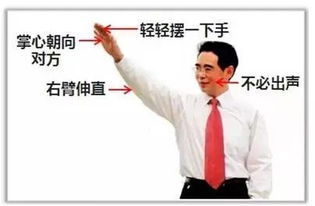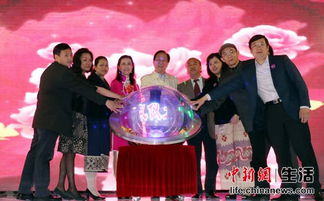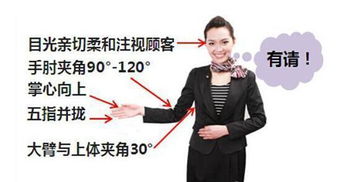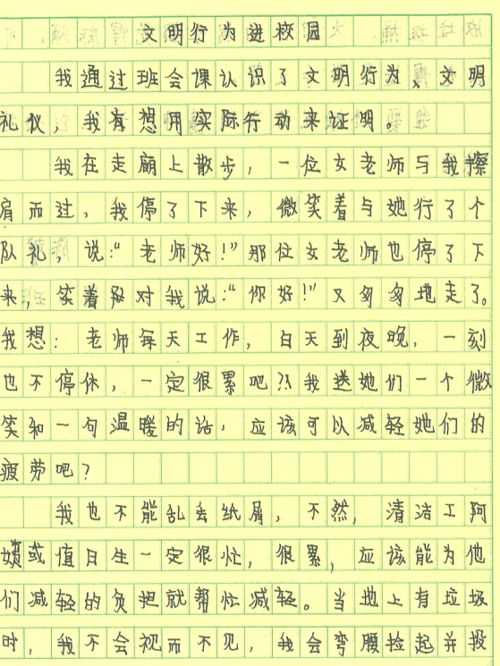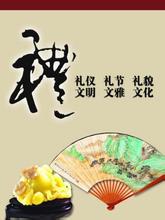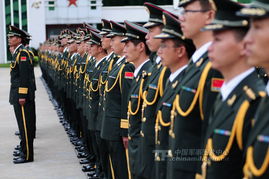1.中国礼仪英语作文80字
China Dining Custom Table Manners The main difference between Chinese and western eating habits is that unlike the West, where everyone has their own plate of food, in China the dishes are placed on the table and everybody shares. If you are being treated by a Chinese host, be prepared for a ton of food. Chinese are very proud of their culture of cuisine and will do their best to show their hospitality. And sometimes the Chinese host use their chopsticks to put food in your bowl or plate. This is a sign of politeness. The appropriate thing to do would be to eat the whatever-it-is and say how yummy it is. If you feel uncomfortable with this, you can just say a polite thank you and leave the food there.。
2.关于中国礼仪的英语作文
哦,这个是按你的要求我自己写的,可能有些语法错误,仅供参考吧。
china has 5000 years history, people called china 'a country of polite'. chinese people are always very friendly and kind, but what you should pay attention to is that chinese people also has their own ways to get on with others. when you meet a chinese, if you want to start a talking with him or her, you'd better ask like this;have you eat your meal? but not like english people:what's the weather?' you can also shake hands with chinese people when you first meet him. when you having a meal with chinese people , the most important thing you should pay attention to is do not put the chopstickes into the bowl, because chinese people don't think it's good. in china 8 and 6 are the most popular number, because they means earn money and lucky in china. china really has lots of polity cultures, they are waiting for you to find.
本人只有高一,水平有限,写的作文仅供参考,要自己写的才显得真实嘛,网上找的你交给老师也显的太假,不是吗?呵呵
希望采纳咯!
3.英语作文 在中国的餐桌礼仪
Chinese table manners Table manners in Chinese life and order in the full possession of a very important position, they believe, eating is not only way to meet their basic physiological needs method -- is also of paramount importance social experience. To this end, grasp the knowledge of the rules in some Chinese restaurants have become particularly important, whether you are a master, or merely a guest, must have some rules. 餐桌礼仪在中国人的完整生活秩序中占有一个非常重要的地位,他们认为,用餐不单是满足基本生理需要的方法———也是头等重要的社交经验。
为此,掌握某些中式餐饮规则的知识便显得特别重要了,无论你是主人,抑或只是一位客人,都必须掌握一些规则。 The round table is popular. Because they can sit more people, and we can sit face to face, the head of the family identity and not long shaped the West on the table very clearly through his seat and identification. Guests should be invited to sit down and wait for the owner. The owner must be careful not to call the guests sitting in a seat near the table. This is a taboo.Will have to wait until all the people here can only be the beginning of any form of dining activities -- even if they have to wait for being late. Once you master home place, can do the prologue. During the meal, the owner must assume a proactive role -- urging guests enjoy eating and drinking is entirely reasonable. ●圆形餐桌颇受欢迎。
因为可以坐更多人,而且大家可以面对面坐,一家之主的身份并不像西方长形餐桌上很清楚地通过他的座位而辨认。客人应该等候主人邀请才可坐下。
主人必须注意不可叫客人坐在*近上菜的座位。此为一大忌。
必须等到所有人到齐才可以开始任何形式的进餐活动———即使有人迟到也要等。一旦大家就位,主人家便可以做开场白了。
进餐期间,主人必须承担一个主动积极的角色———敦促客人尽情吃喝是完全合理的。 In a typical Chinese-style table looks quite empty, in the eyes of Westerners, especially. Each seat can be seen on the front wheel on a bowl; right is a set of chopsticks and spoons, were placed in their own seat. In formal occasions, there will be napkins, mainly on the lap. In a formal banquet, the dishes of eating like a slide show, each time a dish. Surprisingly, rice, not with the dishes ibid, but you can choose to eat the same. As the dishes have their special characteristics, it should be for individual taste, but once only from a bowl to eat, not mixed taste. Plate is not available to eat, can only bowl. Bones and shells on the individual disk. Not clean the dishes must always be replaced with clean plates. ●一张典型中式餐桌看上去相当空,在西方人眼中尤甚。
每张座位前可见放在盘上的一只碗;右面是一组筷子与汤匙,分别放在各自的座上。在正式场合上,会出现餐巾,主要放在膝上。
在正式宴席上,菜式的吃法很像放映的幻灯片,每一次一道菜。令人惊讶的是,米饭不是与菜式同上,不过可以选择同吃。
由于菜式各有特色,应该个别品尝,而且一次只从碗中吃一种,不是混合品尝。不可用盘子吃,只能用碗。
骨头和壳类放在个别盘中。不干净的盘子必须经常用清洁盘子替换。
in addition to Tom, the gallery of all the food with chopsticks. May provide a knife and fork, but as the Chinese people, it is best to use chopsticks. Chopsticks are eating a tool, so do not play with the chopsticks -- take them when the drumstick is a very rude way, but can not use chopsticks pointing to the person or motioned. Of course, absolutely can not suck or to chopsticks chopsticks inserted in rice, it is Taboo -- this is like the funeral of incense, is considered unlucky. Again, can not use chopsticks in a non-stop flipping Diecai years, should be the first sights with your eyes you want to get food. When you use chopsticks to pick up one of the food, try to avoid the encounter other food. If possible, use public chopsticks and spoons beside. After dinner or take the food after the end, will chopsticks chopsticks back seat. ●除了汤之外,席上一切食物都用筷子。可能会提供刀*,但身为中国人,最好用筷子。
筷子是进餐的工具,因此千万不可玩弄筷子———把它们当鼓槌是非常失礼的做法,更不可以用筷子向人指指点点或打手势示意。当然,绝对不可吸吮筷子或把筷子插在米饭中,这是大忌———这正好像葬礼上的香烛,被认为是不吉利的。
再有,不可用筷子在一碟菜里不停翻动,应该先用眼睛看准你想取的食物。当你用筷了去取一块食物时,尽量避免碰到其他食物。
可能的话,用旁边的公筷和汤匙。吃完饭或取完食物后,将筷子放回筷子座。
A seat Chinese restaurant without a formal tea and can not claim. Therefore, as far as possible, the storage of different varieties of tea is a sensible approach, to ensure the most sophisticated taste is also taken into account. Issues 。
4.求一篇关于介绍中国礼仪的英语作文
Chinese table etiquette boils down to the following points: 1. Admission etiquette. Ask guests seated on the seats. Please elderly guests in attendance were seated next to attendance at from the left side into the chair. Admission Dongkuaizi not after. What more do not come to beep. Not to get up walk. If what happened to the owner notice. Second, when the meal. Ask guests. Long the Dongkuaizi. Jiacai, each less. Far from the food on their own eat some. Meal not a voice. Heshang also not a sound use Kaitang I spoon a small drink and a small mouth. Pawan front-lips not drink, soup, hot cool after Zaikai. side not to drink while blowing Some people prefer to chew food to eat. extraordinary feel like work is crisp chewing food, a very clear voices. this is not etiquette demands. extraordinary and everyone is eating together, as far as possible to prevent the emergence of this phenomenon. Third: Do not eat hiccup, other voices will not arise if there sneezing, Changming involuntarily, such as the sound, it is necessary to say "I am sorry."; I am sorry;. "Of the original cooler." Within the words . to show regret. Fourth if guests or elders give cloth dish. Best use of chopsticks may also be the guests or elders far away from the dishes to their front, according to the habit of the Chinese nation. Dish is a one of the Top. If the same tables leadership, the elderly, the guests said. Whenever of a new dish, let them first Dongkuaizi. rotation or invite them to the first Dongkuaizi. to show their importance. Fifth: eat the head, fishbone, bones and other objects, not Wangwaimian vomit, not onto the ground still. Slowly to get their hands Diezili, or close on their own or on Canzhuobian prepared beforehand good on paper. Sixth: To a timely manner about the time and people just a few humorous, to reconcile the atmosphere. Guangzhaotou not eat, regardless of others, and do not devour and destroy the lavish meal, not jail sentence. 7: It is best not to the dinner table Tiya if it is to Tiya, will use napkins or sign blocked their mouths. 8: To clear the main tasks of the meal. Must be clear to do business oriented. Feelings or to the main contact. Mainly or to eat. If it is the former, when attention should be paid to the seating arrangements. Their main negotiators the seats near each other to facilitate conversations, or dredge emotion. If it is the after. need only pay attention to common-sense courtesy on the line, to focus on the appreciation of dishes, 9: The last time left. Must be expressed gratitude to the host. At the invitation of the owner or to their own homes after the house to show back China is the etiquette of helping people, Minsishiweitian, dining How can no rules! While stressing that no attention is three meals a day, but do not know know better than OK! 1. Inviting guests to notice, Ruxi 6:00, 5:50才叫your elderly guests, it does not. 2. Hosts who looked to be late; guests should be 5-10 minutes late, and this is very considerate guests Oh, and pay attention to grasp, natural host and the guest are Huan. 3. If sit round a table, facing the door of the main blocks, or back * walls, counters; emphasize some hotels will be used napkins distinction, the highest position napkins can not casually sit Oh, unless you intend to good banquet woven?: D 4. Masters of the subject and object of the right hand side, the left hand side of the important guests; * gate facing the master, of course, is run errands entertain the Peiqia sit you. 5. Guests do not directly to the members of a la carte and calling guidance, obediently waiting for the hosts who looked to be a la carte if guests really serious taboos or hobbies, and should be gently told the hosts who looked, the owner of natural putting his interests and meet guests little or significantly requirements. 6. Hosts who looked not need points or less grasping points, or holding food dishes, such as crab, lobster legs, ribs, and so on. For a meal to the three dishes such a rule no. What can be said etiquette! 7. Not a small amount of force will not object to others drink wine without fragmentation feast! 8. On the wine servings! Foreigner likes to boast of skill, people may boast their own point-for the food, hosts who looked at carefully observed Liangcai Qi, every Cup have drinks later, when immediately drank to welcome the start. . . Like, rotating disk or right hand side indicate the subject and object moving first chopsticks. Tuirang subject and object should not be too long, oh, we stomachs are hungry, it will eat you open! Do not forget to eat the praise of some oh. 9. After one of every dish, although the waiter and owner will still go before the subject and object, but not too rigidly stick with 。
5.谁帮写一篇关于中国礼仪的英语作文
中国礼节(Chinese Etiquette) 在外国人的眼中,中国人的礼节有时是很令人费解的。
让我们来看看外国人眼中的中国礼节:Chinese courtesies have always been formal to follow strict rules, although sometimes Chinese people seem to be impolite according to Western norms in public places. To well understand Chinese, some concepts should not be ignored:尽管在西式标准的公共场合下,中国人有时似乎显得不够礼貌。但中国式的礼貌,却有它自己的严格规则。
要更好的了解中国,下面的这些概念你就不该忽视:面子/Mianzi (Face) The idea of shame, usually expressed as 'face' could be loosely defined as the 'status' or 'self-respect' in Chinese and by no means alien to foreigners. It is the worst thing for a Chinese to lose face. Never insult, embarrass, shame, yell at or otherwise demean a person. Since all these actions would risk putting a Chinese in a situation that he might lose face. Neither try to prove someone wrong nor shout at him in public. In order to get a successful effect without letting a Chinese lose face, any criticism should be delivered privately, discreetly and tactfully, or else, just opposite to what you wish.羞耻这个概念,通常被表达为“面子”。在中文中大致的含义是“地位”或者“自尊”,这和外国人的观念并不相同。
在中国,最糟糕的事莫过于失了面子。所以,千万不要对一个人进行侮辱、羞辱或者对其大吼,让其尴尬等。
因为这样会让一个中国人感觉到失了面子。千万不要证明某人错了,或者在公共场合对其吼叫。
为了能有效的传达意见而不让中国人丢了面子,任何的批评都应该私下传递,而且方式要巧妙而谨慎。否则,你将事与愿违。
关系/Guanxi (Relationships between People) Throughout much of Chinese history, the fundamental glue that has held society together is the concept of guanxi, relationships between people. It is very important for the Chinese to have good relationships. They often regard good social relations as a symbol of personal ability and influence. Someone who has no connections would be despised and is only half-Chinese.纵贯中国的历史,一个维系社会的基本粘合剂就是关系这个概念,也就是人与人之间的关联。对中国人来说,有良好的关系是十分重要的。
他们往往将拥有良好的社会关系看成是一个人能力和影响力的象征。一个毫无关系的人将会被轻视,而且最多只能算半个中国人。
客气/Keqi Keqi not only means considerate, polite, and well mannered, but also represents humbleness and modesty. It is impolite to be arrogant and brag about oneself or one's inner circle. The expression is most often used in the negative, as in buyao keqi, meaning "you shouldn't be so kind and polite to me," or "you're welcome." 客气并不只是包含考虑周详、礼貌文雅和举止端详,还表现在谦逊和谨慎。对自己或者自己的圈内人表达的傲慢或者自夸都是不礼貌的。
表达的时候,通常要以否定的形式,比如“不要客气”,意思是说“你不必对我这么关心、礼貌”或“不用谢”。Besides, Chinese seldom express what they think directly and they prefer a roundabout way. Neither show their emotions and feelings in public. They rarely greet people with a handshake, though it is very popular among foreigners, say nothing of embracing or kissing when greeting or saying good-bye. Consequently, it is better not to behave too carefree in public, even though you are well-intentioned. Also, it is advisable to be fairly cautious in political discussions. Do not particularly push yourself forward, or else you are unwelcome.此外,中国人很少直接表达自己的想法,而喜欢用侧敲旁击的方式。
从不在公共场合表现自己的情绪或者感觉。尽管在西方握手的见面礼非常普遍,但在中国这样做的人还不是很多,更不用说见面和道别时的拥抱和亲吻了。
因此,即使你是出于好意,在公共场合也不要表现的太自由自在。同样,在政治话题上保持相对慎重也是明智的。
不要太特立独行,否则你将会是不受欢迎的。To sum up, do in Rome as Rome does, but you need not worry about these cultural barriers since most Chinese are hospitable and amiable and will not mind your nonproficiency.总之,入乡随俗,但你也不必对这些文化障碍担心,因为大多数中国人都是好客和和蔼的,他们不会介意你的不熟悉。
6.关于中国礼仪的英语作文
Second, when the meal. Ask guests. Long the Dongkuaizi. Jiacai, each less. Far from the food on their own eat some. Meal not a voice. Heshang also not a sound use Kaitang I spoon a small drink and a small mouth. Pawan front-lips not drink, soup, hot cool after Zaikai. side not to drink while blowing Some people prefer to chew food to eat. extraordinary feel like work is crisp chewing food, a very clear voices. this is not etiquette demands. extraordinary and everyone is eating together, as far as possible to prevent the emergence of this phenomenon。
7.关于中国餐桌礼仪的英语作文
不清楚你的详细要求,这个是详细版本,可以自行缩减 Generally, Chinese table manners are more informal than the West, although there are more rules concerning interactions with other guests due to high levels of social interaction as a result of the communal style of serving.Chopstick usage Chopsticks should always be held correctly, i.e. between the thumb and first two fingers of the right hand. When not in use, chopsticks must always be placed neatly on the table with two sticks lying tidily next to each other at both ends. Never point the chopsticks at another person. This amounts to insulting that person and is a major faux pas. Never wave your chopsticks around as if they were an extension of your hand gestures. Never bang chopsticks like drumsticks. This is akin to telling others at the table you are a beggar. Never suck the chopsticks. Decide what to pick up before reaching with chopsticks, instead of hovering them over or rummaging through dishes. To keep chopsticks off the table, they can be rested horizontally on one's plate or bowl; a chopstick rest (commonly found in restaurants) can also be used. When picking up a piece of food, never use the tips of your chopsticks to penetrate the food as with a fork; exceptions include tearing apart larger items such as vegetables. In more informal settings, smaller items or those more difficult to pick up such as cherry tomatoes or fishballs may be stabbed, but this is frowned upon by traditionalists. Never stab chopsticks vertically into a bowl of rice, as this resembles incense sticks used at temples to pay respects to the deceased. This is considered the ultimate dinner table faux pas. Communal chopsticks When there are communal chopsticks, it is considered impolite to use your own chopsticks to pick up the food from the shared plate, or to eat using the communal chopsticks. It is considered impolite to use the blunt end of one's own chopsticks to transfer food from a common dish to one's own plate or bowl; use the communal chopsticks instead. When communal chopsticks are not provided, it is considered polite (and sanitary) to use the blunt end of one's own chopsticks to serve a guest by transferring food from the common dish to a guest's plate or bowl. An exception to the above can usually be made in intimate settings such as at home. Other utensils If noodle soup is served, many consider a more elegant way to eat by picking the noodle into a serving spoon first, and eating from the spoon, rather than slurping directly from the bowl into the mouth using chopsticks. Chinese traditionally eat rice from a small bowl held in the left hand, however by no means is this good etiquette. It is believed this is the way most people eat but not at all an indication of how it should be done. The rice bowl is raised to the mouth and the rice pushed into the mouth using the chopsticks. Some Chinese find it offensive to scoop rice from the bowl using a spoon. If rice is served on a plate, as is more common in the West, it is acceptable and more practical to eat it with a fork or spoon. The thumb must always be above the edge of the bowl. Eating from common dishes Pick the food on the dish that is at the top and nearest to you in distance. Never rummage through the dish or pick from the far side for your favorite food. In general, more conservative Chinese frown upon the practice of picking more than one or two bites of food in your bowl or serving plate as if you were eating in the Western way. Most Chinese would understand the practice during infectious disease epidemics, or if the person is from the West. If both a serving bowl - separate from rice bowl - and plate are provided, never put any food items to be eaten onto the serving plate. This rule may be relaxed for foreigners. If a dish is soupy, pull the serving bowl near the serving dish and reduce the distance the chopsticks need carrying the food. Spilling plenty of sauce on the table is a major faux pas. After you have picked up a food item, do not put it back in the dish. Seniority and guests at the table The elderly or guest(s) of honour are usually the first to start the meal. The youngest or least senior may serve the eldest or most senior first, as part of the Confucian value of respecting seniors. The youngest on the table addresses all of the elder members at the table before starting, perhaps telling them to please "eat rice" as a signal to help themselves. The best food in a dish should be left to the elderly, children, or the guest of honour, even if they are one's favourite. The eldest person present, or the guest of honour, is given a seat facing the door. When the hostess says her food is not good 。
8.中国的餐桌礼仪英语作文
As a high student,we must learn something about the table manners in China.We should know how to behave well at the table.Chinese are supposed to sit beside the table to eat.And we always put tea cup a bow on the dish chopsticks and spoons on the table.We should look after all guests and invite them to enjoy dinner. It's rude to stick your chopsticks into you food.Besides,you should pick your bowl to eat.If you don't do that,the host will be unhappy.In the end,don't forget to wipe you mouth with your napkin every time you eat. There are important table manners for us.And they are Chinese traditional customs,we should obey this manners every every time.。
9.向外国人介绍中国礼仪的英语作文要求:见面礼、餐桌礼仪等
As we all know,different countries have different table manners. Today, I'd like to introduce something about Chinese table manners. It's very necessary to learn table manners in China. In China, table manners are too much. For instance,you are not supposed to eat with knives and forks. Chinese usually use chopsticks instead. But we are not supposed to stick our chopsticks into our food. But we are supposed to pick up our bowl to eat. And we are supposed to let the old start eating first. And we are allowed to talk at the table. However, you can't talk too loud and laugh too crazily. In fact, in China, table manners are not so serious . so , you don't need to worry about them so much.。
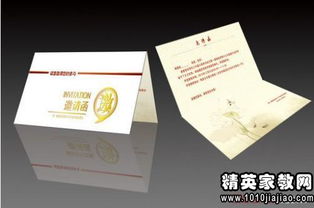

 100
100 2022-12-12 07:51
2022-12-12 07:51